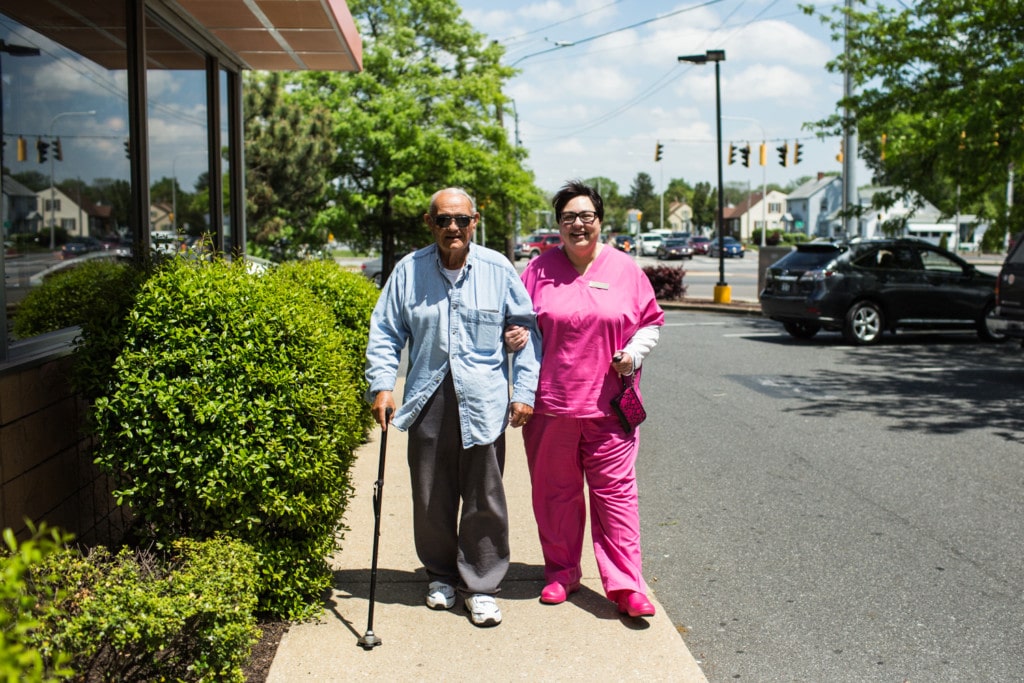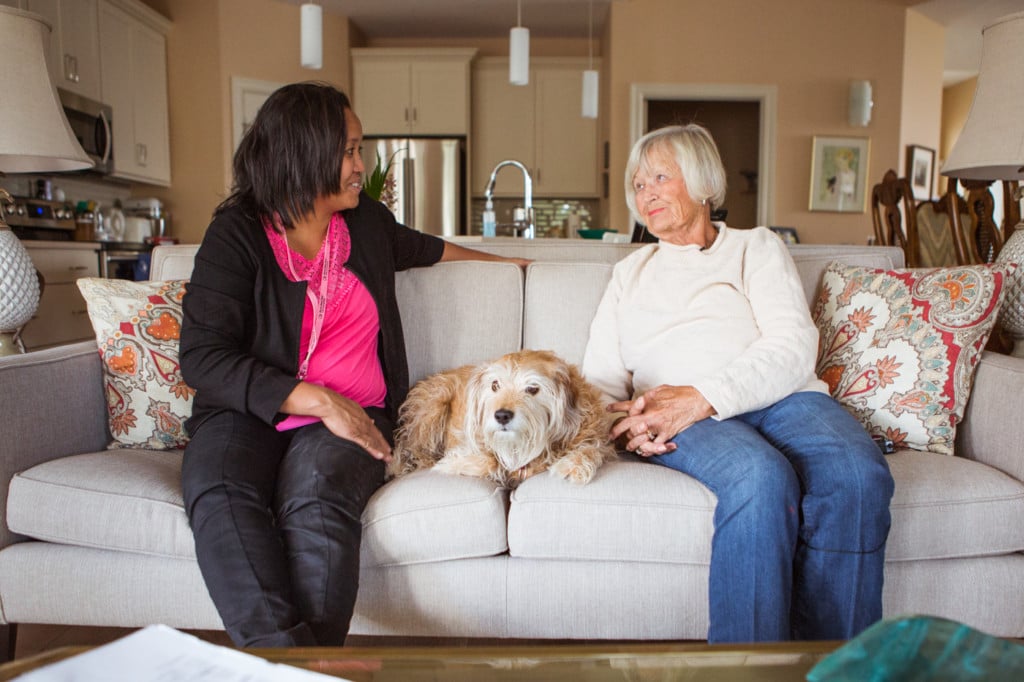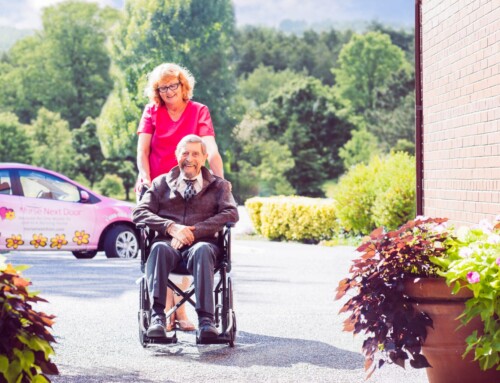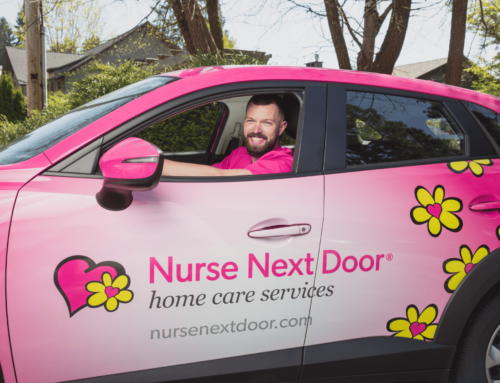Baby Boomers is the name of the generation that was born between 1946 and 1964 after the end of World War II. Boomers have been reaching the age of 65 since 2011. As this great generation reaches the milestone of becoming seniors, it is important to take a look at the impact of this growing demographic!
The U.S. Census Bureau’s data shows that there are around 76.4 million baby boomers. Projections suggest that 71.4 million people will be age 65 or older in 2029. This translates to people aged 65+ make up around 20 percent of the U.S. population by 2029.
In the home care business, aside from newborns, individuals with special needs, the majority of the client base consists of seniors. The steady surge of the senior population is why the home care industry is booming!
In this article, we will examine how Baby Boomers will impact your home care business.
Longevity of Life
Life expectancy has grown all across the world since the 1960’s. According to statistics, the average age in North America in 2019 is now:
- United States: Female 81, Male 76
- Canada: Female 84, Male 80
Sources states that factors such as improvements to housing situations, education, overall concepts of hygiene and sanitation are the reason why people are living longer. Combine that with medical advancements like screenings for diseases, development of vaccines and a variety of treatment options when it comes to managing our health,advanced medical care is more accessible today more than ever.
As people live longer, that means there will be a steady, growing demand for care when they reach an older age and that’s where home care comes in!
Increasing Need of Care Professionals
As many baby boomers reach retirement, among them, many will be retiring from the health care industry! This means there will be a surge in demand in the health care system. How will you position your business when it comes to hiring quality caregivers or nurses when competing with the job demands? According to the Bureau of Labor Statistics, they expect occupations in health care to grow almost 20% by 2024, comparatively faster than other industry averages.
Increase in Single Households
There are retirement facilities, nursing homes and other accommodation and care options for seniors, but a big part of running a home care business is educating people that staying home can indeed be an option for care.
Did you know that in the United States, by 2038, there will be 10.7 million households that will have owners aged 70-79 years old? Even more, 17.5 million will be the number of households with owners that are aged 80+. This accounts for about 12% of entire households in the US. The Harvard study’s biggest finding is that 57% of these households have single occupants, meaning there will be more than 10 million homes with 80+ year olds who are living by themselves. This ties in with the increasing need for care.
Growing Demand of Aging In Place
One of the most staggering statistics that really reinforces the existence of home care is that the American Association of Retired Persons (AARP) had a survey showing 90% of seniors surveyed had expressed that they would prefer to age in place, which is to live out their life in the comfort of their own home! Another stunning statistic is from the PEW Research Center is that every single day, 10,000 members of the baby boomer generation turns 65 (retirement age)!
U.S. Department of Health and Human Services sub-department, LongTermCare reports that 70% of people aged 65+ will be using at least one form of long-term care before the end of their lives.
Technology Industry Booming with Innovations
Technology is constantly being innovated and a lot of these innovations are revolutionizing the healthcare industry and evolving the way home care businesses run. Let’s take a look at examples of technology impacts on senior care.
Virtual Reality: The development of Virtual Reality (VR) may have originally been created for a whole new type of video game, but it is found to be a very immersive tool for dementia patients! A research from the University of Kent shows that it helps those with dementia recall past memories, reduce aggression and even improve their interactions with caregivers!
Smart home devices: Handy devices such Amazon’s Alexa actually also have companionship purposes that can be beneficial for seniors and convenient for the household. See why a Google Home device can be perfect for seniors.
Telemedicine: Telemedicine is the remote delivery of healthcare and it has been on the rise lately as accessibility to healthcare becomes more prominent. Some seniors may have chronic conditions that makes mobility a challenge, and telemedicine is one of the solutions technology has come up with.
Fall prevention tools: Fall prevention is a big topic in home care and there are lots of options for alert devices. Here are some recent models:
Medication Management: If your home care business provides skilled care, medication management may be on your list of services you offer. Having a medication management device couple complement the days the client does not have a caregiver present. It allows you to set up multiple medications or supplements and program their individual dosages. The device will then dispense them punctually based on the frequency each pill is required to be taken.
For a home care business to grow, adapt and evolve, technology plays a big part of your growth. How do you leverage the benefits of technology to improve your business and ultimately, your clients’ lives? Technology can be a propeller for you to reach the next level.
Take Nurse Next Door as an example, Nurse Next Door is the first and only home care franchise brand to build a centralized call center (we call, Care Services Center). It was created with the objective to alleviate Franchise Partners of scheduling duties and other daily tasks so that they can focus on growing the business without day-to-day stress. It is open 24/7, 365 days a year. Being in the business of care, it is essential to us that when people call in, there is a live person with a friendly voice that answers the phone and is ready to help.
Nurse Next Door has also recently moved to a mobile scheduling platform to streamline client files, documents and makes it easier for caregivers to clock-in and out of shifts. As it is GPS-based, we will be able to monitor both our clients and caregivers safety. Nurse Next Door has also built an online training program for our Care Designers and a centralized online platform and mobile app for our franchise owners to have access to their business health, operational manual and systemwide news on the go.
Access Your Welcome Package which includes
- Discovery Video – 15 min overview of this opportunity
- Franchisee Testimonials
- The Nurse Next Door opportunity
- Access to our calendar to book a 1×1 call.
Active Lifestyles and Vast Interests
Nowadays on the news and on social media, you often see videos featuring seniors doing awesome things, which go viral. A lot of the activities they do are age-defying. It may be a lifelong hobby, but it could also be an item to check off of their bucket list!
As mentioned before, life expectancy is a lot longer and that means there is so much more to experience and enjoy in life, especially for the boomer generation. It’s all about living in the moment–life is about having fun!
When running a home care business, the client is the biggest priority. Aside from providing quality care for them, monitoring their health, one of the most important factors is client satisfaction. How do we make them happy? How do we encourage them to live their best life?
Nurse Next Door’s unique, trademarked philosophy of Happier Aging is a big distinguisher for our brand. Instead of having caregivers just completing tasks, they are encouraged to brainstorm and think of ways to bring joy back into their clients lives.
Randy Harken, Franchise Partner of Nurse Next Door Burbank shared a Happier Aging story. One of their senior clients was bedridden for years. Caregiver Natasha knew that the client had a love for giraffes, as the house was decked out with all sorts of giraffe figurines and decor. The client’s birthday was coming up and the Burbank team got together to proposed the idea to bring the client to the Los Angeles Zoo to see the new baby giraffe! They organized with the zoo and much to the client’s family’s delight, she was excited to go! With arranged transportation and accompaniment of caregiver Natasha, they actually got permission to enter the early in the morning before the zoo opened to the public and the client got to feed the baby giraffe! After the visit to the zoo, she requested if they could go dine at a Mexican restaurant as she hadn’t been in years and even asked for a margarita! It’s about looking for clients’ interests and how we can inject happiness.
Another great story of Happier Aging is Jack, a client of Nurse Next Door Maple Ridge. He had always loved his hometown and it was a dream of his to fly over it to see how it has changed in the past 50 years. Franchise Partner Carol Lange made it happen by teaming up with a local helicopter company, just in time for his 100th birthday. See his Happier Aging story in action below:
It’s the supporting of seniors’ independence that got us into the home care business. As a home care services company, we believe in promoting senior health and wellness, and happiness is a big factor in a senior’s well being. By having caregivers provide them with quality companionship, it allows for clients to stay engaged socially, physically and mentally. So, definitely keep your eyes open and see what some activities clients may be interested in doing again—or try for the first time. Activities like silent disco, aqua cycling etc are just some new trends across the senior community! By continuously looking for ways to improve senior clients’ quality of life, you’ll have happy clients and we all know that word of mouth referrals are priceless!
Shifting Family Demographics & Caregiver Burnout
As the baby boomers reach their 80s, the demand for long-term care will continue to increase. In the 21st century, there are more people remaining single or couples choosing not to have children and higher divorce rates etc, which results in an entire demographic shift. The Urban Institute cites that because of the decline in average family size, increase of childlessness and higher percentage of women in the workforce, these all have a significant impact on the availability of family caregivers. So many elderly people are in need of care and with the decrease of potential family caregivers to provide the time, labor and care. That’s where care options like how long-term care facilities, retirement housing communities and home care are here to fill in the gaps.
Caring for a loved one as a family caregiver can be very rewarding, but it also involves changes in the family dynamic, household disruption, financial pressure and the added workload.
The demands of this caregiving role can be taxing, especially when you have to fit it into an already busy schedule. This can lead to caregiver stress or “burnout”. Studies show that family caregivers who provide care are at higher risk for emotional, mental and physical health issues. 40-70% of family caregivers have clinically significant symptoms of depression.
Sometimes care for an aging loved one can be delegated amongst various family members, but for those who might be an only child, it can be challenging to balance everything on their own. That’s why an important function of home care companies is to provide respite care! Giving family caregivers a break, allowing them time to get some time to themselves. This way, they will be able to take a breath and have some time for themselves and address their needs. Many people continue to visit their senior loved ones during the time home care provider is present and find that the visits are much more relaxed and positive because the responsibility has been lifted. This is a great example of how home care can supplement the shift in family structure in today’s trend.
With the trends identified above, there is no doubt that the demand for home care continues to grow as baby boomers age. Hope the tips above were useful in understanding the changes in demographic and technology and how it can impact your business! As the home care industry continues to shift, it’s important to continue to be agile and find new ways to adapt to these changes.
Are you thinking of starting a home care business? There is no better time than now! If we haven’t convinced you yet in this article that home care is the direct answer to fulfill the aging population’s demand and a meaningful, entrepreneurial venture, here are some additional resources to check out:
- 10 Reasons to Invest in a Home Health Care Business
- Is Buying A Senior Care Franchise The Right Choice?
Access Your Welcome Package which includes
- Discovery Video – 15 min overview of this opportunity
- Franchisee Testimonials
- The Nurse Next Door opportunity
- Access to our calendar to book a 1×1 call.

 x
x







